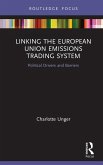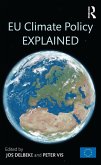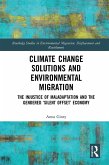While rich practical and academic research has evolved on the economic and technical side of ETS linking, political drivers and barriers have so far been underrepresented in this debate. Filling this lacuna and based on international relations theory, existing research and qualitative fieldwork, this book introduces the range of political conditions that influence linking, such as political leadership and stakeholder activity. Specifically, it analyzes which of these aspects have played a role in three different linking activities of the EU: (1) a failed linking attempt: EU ETS-California Cap-and-Trade Program; (2) a successful linking treaty: EU ETS-Switzerland Emissions Trading System; and (3) an agreed-upon but not realized link: EU ETS-Australia Carbon Pricing Mechanism. Through an interrogation of these examples, Dr. Unger concludes that it is not only the technical challenges or the overall economic benefit but rather domestic interests, structural aspects, and external international political developments that have jointly dominated linking activities, especially those in which the EU takes part.
This book will be of great interest to scholars and policy-makers working in climate policy and EU environmental politics.
Dieser Download kann aus rechtlichen Gründen nur mit Rechnungsadresse in A, B, BG, CY, CZ, D, DK, EW, E, FIN, F, GR, HR, H, IRL, I, LT, L, LR, M, NL, PL, P, R, S, SLO, SK ausgeliefert werden.
"Charlotte Unger raises fascinating and important questions related to the rise of emissions trading systems in different parts of the world and the factors which have promoted or inhibited efforts to link these systems, so as to create even bigger carbon trading markets. She highlights the climate benefits that could come from linking, while pointing out how domestic political factors can either boost or block linking efforts. This book will be a must-read for all those interested in developments globally related to emission trading systems." -- Miranda Schreurs, Professor of Environment and Climate Policy, Technical University of Munich, Germany









